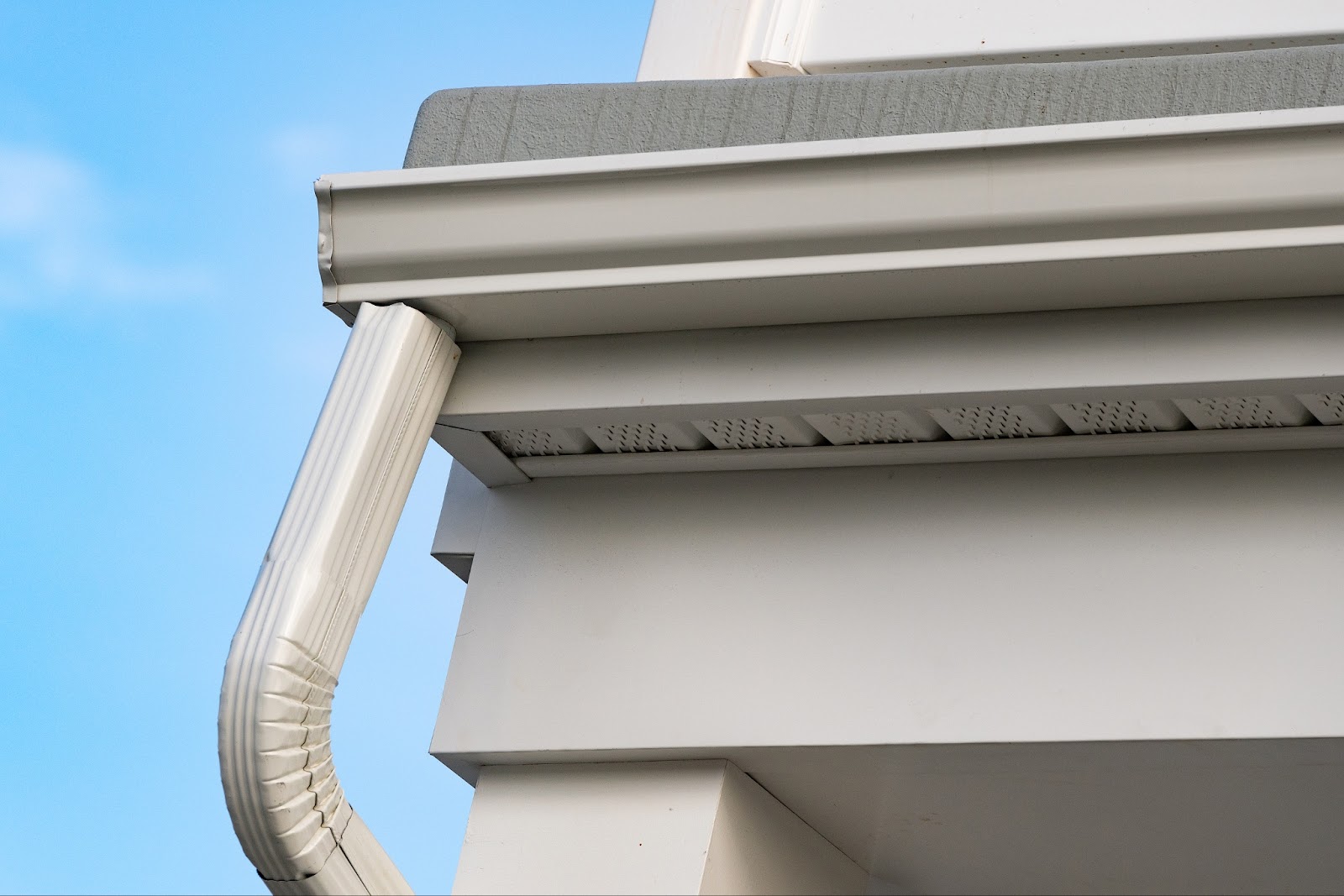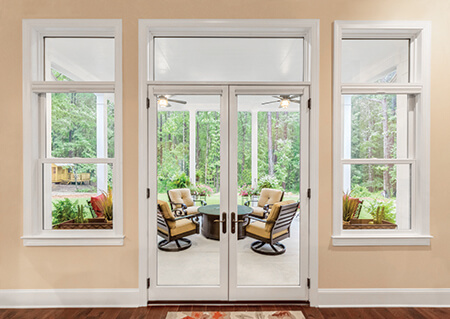Anatomy Of A Gutter System

The Different Parts That Make Up Your
Topeka, KS, Gutter System
Your Ultimate Guide To How Your Gutters Work
You probably don’t think too much about your gutter system on your Topeka, KS, home – until there is a problem. Knowing the different parts and how they work together to form a functional unit is a good idea. That way, when something goes wrong, you’ll know exactly what needs to happen to fix it.
We will discuss the anatomy of a gutter system, detailing each part that makes up this critical system. Knowing this information can also help you make an informed decision between seamless gutters and sectional gutters.
What Are Seamless Gutters?
It’s important to note the difference between seamless gutters and sectional gutters. Seamless gutters are custom fit to your home and are made in one long piece by a special portable machine used on site during installation. This allows for premium function during the heaviest rainfall with minimal opportunity for leaking.
Sectional gutters are made from separate pieces of material that fit together to form a cohesive solution. They can often be bought at big-box retailers and installed as a DIY project. The significant problem with this type of system is the large number of seams that significantly increase the risk of having leaks.
The Parts Of A Gutter System
Several pieces make up a gutter system, all of which are essential for making it work correctly. When working with your gutter installation or repair company, you’ll need to know these terms.
Gutters
The gutters themselves are the first and most fundamental parts of understanding your project. These parts of the system physically catch the rainwater as it comes off your roof. You can easily match them to your home due to the variety of colors, materials, and styles available.
Gutter Guards
Gutter guards are an incredibly beneficial investment to make in your gutter system. They help prevent debris, leaves, and small animals from entering your gutters, which stops clogs before they have a chance to form. A premium option is Gekko Gutter Guards, which can fit any home in Topeka, KS, for expert protection.
Downspout
The gutters transport the water toward a vertical pipe, usually located on the corners of the home. This pipe is called the downspout. They are either rectangular or round and direct the flowing water safely away from your home, where it cannot do damage to your foundation or landscape.
Elbow
If a gutter has to navigate around a corner, it needs a piece that will bend to meet the next section. This piece is called the elbow. These are used on the corners of your home to make the gutters one unit. All the parts are fastened together, and a sealant is used to ensure they do not separate.
Elbows are also used on the ends of downspouts to cause the water to flow away from your home. They can also be placed at the downspout’s top, connecting it to the gutter opening.
End Caps
When a gutter does not go around a corner and instead stops at the edge of the roof, it needs something to stop the water from flowing out of it. End caps are placed on the edges of gutters, which forces the water to go in one direction only – toward the downspouts, where it will not cause any property damage.
Fascia Board
The fascia boards are located at your roof’s edge and are where your gutters get mounted. These boards must be maintained, as rotted fascia cannot support any gutter system and will need to be replaced. When your gutters are appropriately installed and maintained to function correctly continuously, they protect your fascia boards from damage.
Hidden Hangers
While gutter installations are often completed with screws and bolts, they can be done with hidden hangers. These are installed inside the gutters for the most aesthetically pleasing results. You won’t be able to see them from the ground, and they attach directly to the fascia for the most secure hold.
Ferrule
No longer a standard method for attaching gutters to roofs, the ferrule is a small piece of metal. A long spike is driven through a hole in the front of the gutter, penetrating the ferrule – it secures down through the fascia board.
Miter
For those situations where you have to have your gutters wrap around a corner or something similar, you’ll need a miter. This connector holds two sections together and is caulked for premium protection against leaks.
Pipe Cleats
Your downspout is attached to the side of your home by pipe cleats, which look like clips placed on the exterior of the pipe. They’re screwed into the siding of your home to secure the downspout.
For All Your Gutter Installation Needs In Topeka, KS, Call Midland Exteriors
You need seamless gutters installed for the best-performing gutters on your Topeka, KS, home. Trust a company with the best materials and installers.
Here at Midland Exteriors, we’ve established a history of trust with our customers. We maintain the highest quality standards, customer service, and professionalism.
Call us today at (855) 735-8255 to schedule your free estimate.

